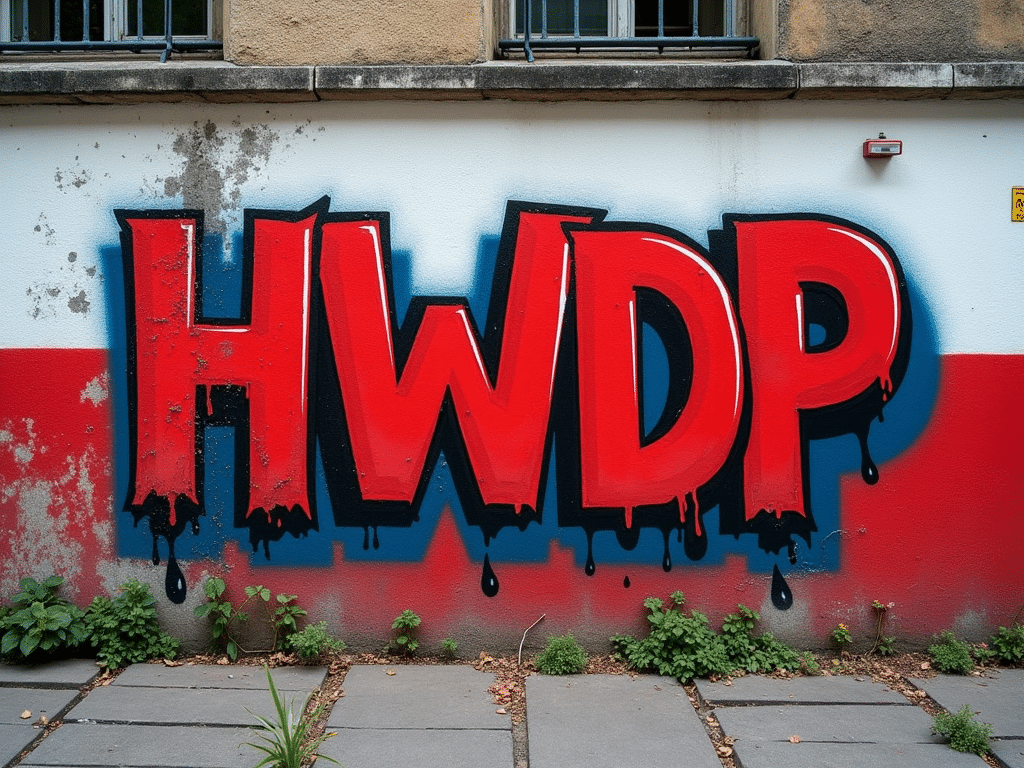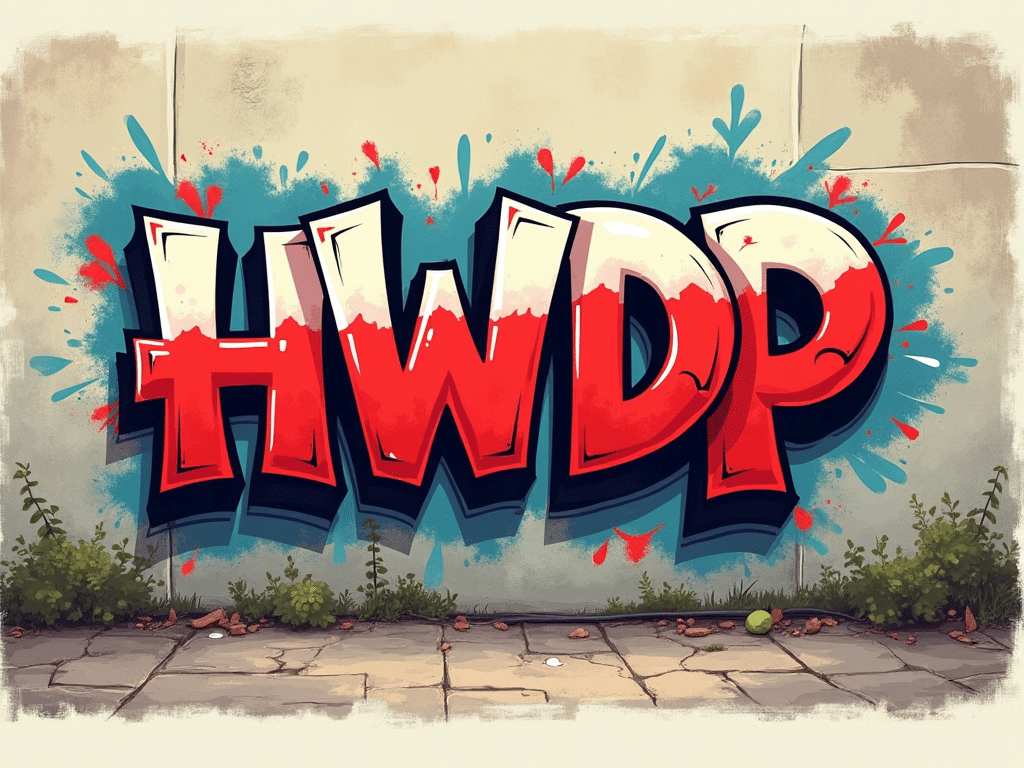HWDP, sometimes written as CHWDP, is a Polish acronym that’s become a symbol of anti-authority sentiment in Poland. This vulgar phrase, which translates to a crude insult against the police, has spread from street graffiti to popular culture and even international recognition.
| Key Takeaways | |
|---|---|
| Meaning | Vulgar anti-police slogan in Polish |
| Origin | Street graffiti and protest culture in Poland |
| Usage | Graffiti, music lyrics, internet slang |
| Significance | Symbol of anti-authority and anarchist movements |
Origin and Meaning

The acronym HWDP stands for “chuj w dupę policji” in Polish. In English, this phrase translates to a very crude insult directed at the police. It’s important to note that this expression is highly offensive and not suitable for polite conversation.
Growing up in Poland, I first encountered this acronym as a teenager. It was scrawled on the walls of abandoned buildings and occasionally whispered among classmates who wanted to seem tough. At the time, I didn’t fully grasp its significance, but I knew it was something that adults frowned upon.
Usage and Context
HWDP has found its way into various aspects of Polish culture:
- Graffiti: You’ll often spot these four letters spray-painted on walls throughout Polish cities.
- Music: Many Polish hip-hop artists have incorporated HWDP into their lyrics, using it as a symbol of rebellion.
- Internet Culture: The acronym has spread online, becoming a common sight in comment sections and social media posts.
Variations and Pronunciation
While HWDP is the most common form, you might also see:
- CHWDP – An alternative spelling that’s pronounced the same way
- [xa vu dɛ pɛ] – The phonetic pronunciation
A Polish friend once told me that he’d heard older people mistakenly expand HWDP as “Chodźmy na Wódkę, Dziś Piątek” (Let’s go for vodka, it’s Friday), which shows how the acronym has taken on a life of its own.
Cultural Significance
HWDP has become more than just a crude insult. It’s now a symbol of protest against authority figures and “the system” in general. Many young Poles use it to express their frustration with perceived injustices or corruption.
An anarchist acquaintance once explained to me that for him, HWDP represented a rejection of state control and a call for individual freedom. While I don’t personally agree with the use of such vulgar language, I could understand the underlying sentiment of wanting to challenge authority.
Spread and Popularity
The use of HWDP has spread beyond Poland’s borders:
- Slovakia: The acronym has gained traction among youth subcultures.
- Germany: Some areas with large Polish communities have seen HWDP graffiti appear.
A Polish-American friend shared that he was surprised to see HWDP scrawled on a bathroom stall in Chicago, showing how far the phrase has traveled.
Alternative Expansions

People have come up with less offensive expansions of HWDP, often used as jokes or to avoid awkward situations:
- “Chodźmy na Wódkę, Dziś Piątek” (Let’s go for vodka, it’s Friday)
- “Chcemy Wędlin Dużo Poproszę” (We want a lot of cold cuts, please)
I once heard a clever student expand it as “Historię Władzy Dobrze Poznaj” (Study the history of power well) during a heated classroom debate about politics.
Similar Concepts
HWDP isn’t the only anti-police slogan out there. Here are some English equivalents:
- ACAB: Stands for “All Cops Are Bastards”
- FTP: Means “Fuck The Police”
These phrases share the same spirit of defiance against law enforcement, though they lack the specific cultural context of HWDP.
Impact on Society
The widespread use of HWDP has had mixed effects on Polish society:
- Increased tension: It has worsened relations between youth and police in some areas.
- Debate on free speech: The slogan has sparked discussions about the limits of expression.
- Cultural export: It has become an unexpected Polish cultural export, recognized by some outside the country.
A sociology professor I interviewed pointed out that HWDP serves as a “pressure valve” for societal frustrations, allowing people to vent their anger symbolically rather than through direct confrontation.
Conclusion
HWDP, while crude and offensive, has become a significant part of Polish counterculture. It represents more than just its literal meaning, serving as a symbol of rebellion and dissatisfaction with authority. Whether scrawled on walls or whispered among friends, these four letters carry a weight of cultural significance that goes far beyond their vulgar origins.
Understanding HWDP provides insight into the complexities of Polish society and the ways in which language can become a tool for expressing discontent. While it’s important to recognize the phrase’s significance, it’s equally crucial to approach its use with caution and respect for others.







